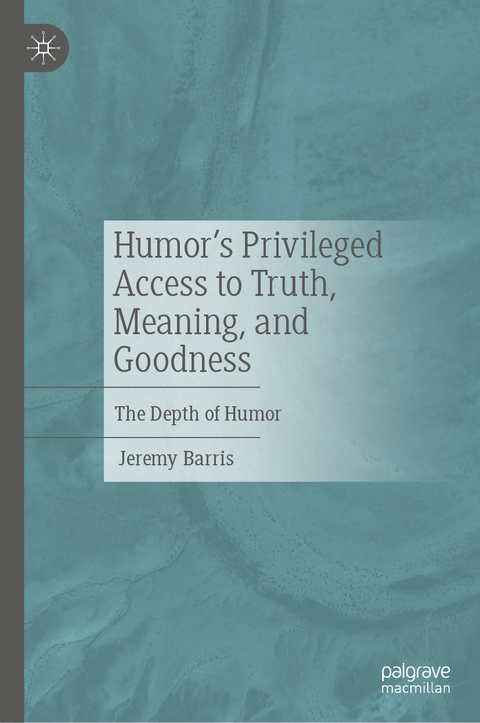
Humor’s Privileged Access to Truth, Meaning, and Goodness
Springer International Publishing (Verlag)
978-3-031-74432-7 (ISBN)
- Noch nicht erschienen - erscheint am 13.01.2025
- Versandkostenfrei innerhalb Deutschlands
- Auch auf Rechnung
- Verfügbarkeit in der Filiale vor Ort prüfen
- Artikel merken
This book explores three connected insights into humor. First, that humor provides a privileged access to the deepest kind of truth, the sense as such of its topics and so of their very reality. It is argued that humor allows us to see things afresh and truly by flouting the sense of the things it deals with so enabling us to step outside of our taken for granted immersion in that sense. As a result, the character of the true sense stands out against the contrast of its nonsensical distortion. Second, that because of the way humor accesses truth, it also brings out the essential meaning of relevant value including the good and the worthwhile. Third, humor enables a privileged coordination and negotiation of profoundly conflicting truths and values. Humor's access to truth is privileged both in its depth, even with respect to metaphysics, and also because it establishes the truth of what it shows.
Humor's Privileged Access to Truth, Meaning, and Goodness is essential reading for all scholars and researchers of the philosophy of humor.
Jeremy Barris is Professor of Philosophy in the Humanities Department at Marshall University, USA.
Introduction.- Chapter 1. Humor as a Privileged Grasp of Deep Truth.- Chapter 2. Humor as a Privileged Grasp of Goodness, Meaningfulness, and Mutually Exclusive Truths.-Chapter 3. Overlaps and Illuminating Problems with Alternative Accounts of Humor.- Chapter 4.Further Features of Humor's Access to Deep Truth: Humor's Devices for Fixing and Sustaining our Attention on Sense as Such.- Chapter 5.- Henry Fielding I: Amiable Humor.- Chapter 6. Henry Fielding II: Amiable Humor, Ironic Distance, and the Charitable Embrace of Conflicting Truths and Values.- Chapter 7.- The More Fine-Grained Structure of Humor's Self-Canceling Distance from Sense: How Bringing Out Sense's Unqualified Truth Itself Makes Room for Sense That It Wholly Excludes.- Chapter 8 Jane Austen: The Consummate Ironist Chapter 9. Charles Dickens: Bleak House, Caricature, and the Meaning and Meaningfulness of Reality Itself.- Chapter 10.- Oscar Wilde: The Perversity of Paradox and the Sense of Sense Itself.- Chapter 11.- George Bernard Shaw: The
Pertinence of Paradox and the Call in Sense Itself for Charitable Compassion.- Chapter 12. Gilbert Keith Chesterton:The Impertinence of Paradox and the Meaningfulness of Reality Itself.- Chapter 13.- Long or Narrative Jokes.- Chapter 14. Humor and Religious Insight: Humor as a Celebratory Appreciation of Life and the World. Chapter 15. Humor and the Insights of Particular Religious Traditions.- Conclusion.
| Erscheint lt. Verlag | 13.1.2025 |
|---|---|
| Zusatzinfo | IV, 394 p. |
| Verlagsort | Cham |
| Sprache | englisch |
| Maße | 155 x 235 mm |
| Themenwelt | Geisteswissenschaften ► Philosophie ► Sprachphilosophie |
| Schlagworte | goodness • Humor • meaningfulness • Truth • Value |
| ISBN-10 | 3-031-74432-2 / 3031744322 |
| ISBN-13 | 978-3-031-74432-7 / 9783031744327 |
| Zustand | Neuware |
| Haben Sie eine Frage zum Produkt? |
aus dem Bereich


